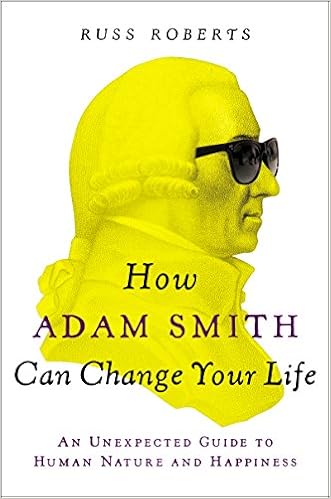 |
| The infamous Jordan Peterson |
No one ever accused me of being cutting edge; the closest I ever came was when my daughter said I was "stealthy hip," which was, I think, more an attempt alleviate my sense of dismay about my
inability to keep up with contemporary trends. But like almost anyone who reads on the internet, earlier this year I came across Jordan Peterson. David Brooks wrote a column about him, and I investigated further. Brooks was generally complimentary, but when I looked into him further, I found Peterson had generated some controversy. I looked deeper. Pankaj Mishra (more or less) labeled Peterson a fascist in the NYRB. On the other hand, I listened to Peterson in discussion with feminist author Camille Paglia, and instead of a brawl, I found it a love-in. Hmm, quite a contrast from Mishra's screed. I listened to Peterson in an enlightening discussion with Iain McGilchrist, of The Master and His Emissary fame (one of the most exceptional books that I've read in recent years). I listened to Peterson interviewed by Russ Roberts on his podcast EconTalk. (Roberts also posted a piece post interview here on Medium.) I watched some videos. I watched the interview with BBC that was a train wreck of the interviewer's making; Peterson was more composed than I think I would have been under such an attack (ineffective and off-putting as it was). I listened to him discuss his "12 Rules" (I haven't read the book). On the whole, I found him reasonable and persuasive. He is neither the second coming nor the devil incarnate. However, I did learn that he was (as he describes himself) " a classic British liberal" (think John Stuart Mill's On Liberty). This breed, becoming all too rare, is hard to find these days, having become the target of hunters on both the Right and the Left. Also, Peterson resisted compelled speech. He did not purvey any "hate speech," he simply refused to acquiesce to a requirement to use new pronouns for those who claim no "binary gender."
 |
| Gary Lachman, trusted guide |
But I've gotten ahead of myself, especially in the last couple of sentences. Until just recently, I hadn't gotten a real hold on what all of the fuss was about. (Mishra's piece was on whole uninformative; he doesn't like Peterson.) So when I saw that Gary Lachman had written a review of Peterson, I was delighted, and I immediately read it (popping for the magazine price). Lachman has consistently displayed a patient, careful, and sensitive attitude toward ideas that are often esoteric and sometimes downright occult in addition to his consideration of more mainstream intellectual trends. My anticipation was justified. From Lachman's careful review of the circumstances, I've come to the conclusion that Peterson's notoriety, at least among his critics, comes from his critique of postmodernism. And here's where I fear I show my age.
I completed my formal education in 1979--before the wave of European postmodern thought had fully reached American shores. Of course, I've encountered it since then, but only by way of those who have provided what I've found to be devastating critiques. Several works by Ken Wilber and historian Richard Evans's In Defense of History come to mind. Not that postmodernism doesn't have some worthwhile insights but taken to extremes (as its adherents seem intent to do), it collapses under the weight of performative contradictions. As a successor to a more traditional Marxism, it looks weak and shallow, almost trite. Off-springs of postmodern thought, like "cultural appropriation," "identity politics," and "political correctness," each of which might have some validity in some circumstances, are taken to ridiculous extremes. As Lachman explains, Peterson's challenge to some of this, more than the substance of his thought, seems to be the lightning rod for most of the criticism leveled against him. As a classic liberal (a firm belief in free speech), he and those like him are caught between howling (online) mobs from both the left and the right. (Some on the alt-right seem to celebrate him, but it appears that this doesn't come from an understanding of his thought but from the desire poke the postmodern left in the eye.)
Free speech, including (but not limited to) rights under the 1st Amendment to the Constitution, presents a vexing set of issues. Anyone who's read judicial opinions about 1st Amendment free speech issues knows how complicated these issues can be. And most speech is not governed by the 1st Amendment (it's not regulated by the government), but standards are a matter of norms; that is, the everyday decisions and actions that we exhibit toward any speech. In fact, all of us are prone to intolerance; free speech and an attendant openness to ideas--even really crappy ideas not to mention worthwhile, consequential ideas--is something that we have to intentionally cultivate. We don't like attacks on our beliefs. Change comes about only slowly and grudgingly. Given half-a-chance, we'll backslide. But the struggle is worth the prize. Sometimes we have to suffer nonsense, and perhaps even vile, to assure that we have the freedom to pursue the truth, challenging as that always is.
So if Peterson is wrong about his psychology, philosophy, or his interpretation of texts, by all means, criticize him. And so if you believe him wrong about his choice of pronouns or even why he's wrong to resist compelled speech, say so, but do it on the merits (if any), not by name-calling, ad hominem attacks, or dismissive branding. As he might say, stand-up straight, pull back your shoulders, and argue your point.




